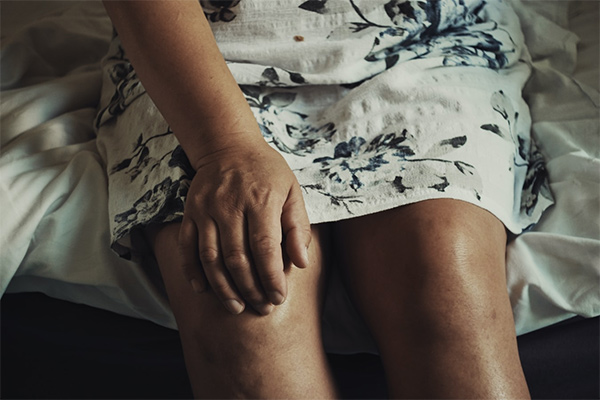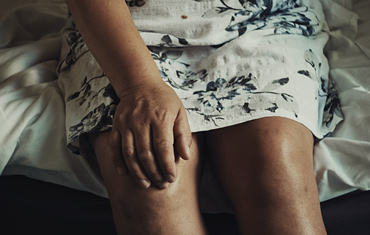
ACL sprains and tears are among the most common types of knee injuries in the U.S., with more than a quarter million people injuring their anterior cruciate ligaments every year. Although ACL tears are more common among athletes in high-intensity sports, like football, basketball and soccer, anyone can wind up injuring their ACL — even weekend athletes and people who lead relatively sedentary lifestyles.
ACL surgery recovery timeline
Like other knee injuries, ACL injuries run the gamut. Very mild sprains typically heal with just a little TLC from Dr. Van Thiel, along with rest and activity modification during recovery. But more severe injuries like partial and complete tears almost always require ACL surgery to restore normal joint function. Most surgery uses minimally-invasive techniques with very small incisions. That means less tissue damage during surgery and a faster and more comfortable recovery for you. If you’re having ACL surgery, you’ve probably got a few questions about what to expect as you heal. This brief FAQ can help.
How long does pain last after ACL surgery?
Most people have some surgery-related pain and discomfort for the first week or so. Not surprisingly, pain from knee surgery decreases with time. By the end of a week or two at the most, you should have very little discomfort. Swelling and bruising are also relatively common, and like discomfort, they’re temporary. Dr. Van Thiel will prescribe pain medicine for the first few days after your surgery. You should take your pain medicine as directed, tapering off to over-the-counter medicines as directed.
How long does it take to recover from ACL surgery?
That depends to some extent on the extent of your injury and whether you have minimally-invasive surgery or traditional “open” surgery with a larger incision. In most cases, you can expect to return to some of your regular activities within just a few weeks. Many patients can begin a jogging or cycling routine in about four months. But it can be six months or more before your knee is completely healed. With some sports, it might take up to a year before you’re ready to play again. Physical therapy will begin soon after surgery, and it can help restore movement and strength in your knee joint, too.
What can I do to shorten ACL surgery recovery time?
There are no shortcuts when it comes to healing. Recovering from any type of knee injury will take time. But by following these ACL surgery recovery tips, you can make sure your knee heals as quickly as possible:
Follow Dr. Van Thiel’s instructions.
After surgery, you’ll be provided with complete instructions about how to care for your knee. That includes things like using ice and elevation to reduce swelling and pain. It also includes instructions on your activity levels and what daily tasks you can safely perform. It’s important to get some activity, but don’t try to do too much. Walking each day promotes circulation and healing, but don’t overdo it. Don’t drive a car or climb stairs until Dr. Van Thiel says it’s OK. The same goes for lifting heavy objects, though it can be tempting.
Don’t skip appointments.
Your follow-up appointments give Dr. Van Thiel an opportunity to check on your progress. He’ll ask about your pain and activity levels, and he’ll make treatment recommendations based on how you’re healing. Skipping appointments delays the process, which means it can take longer for you to recover.
See your physical therapist.
Regular therapy visits are critically important for proper healing following ACL surgery. They also help strengthen your knee and improve the way the joint functions. Your therapist will be able to adjust your workout to your needs and activity level. Like your doctor visits, physical therapy visits should not be skipped.
Do your at-home exercises.
Your therapist provides a lot of in-person instruction, but they’ll also give you exercises to do at home. Follow their directions and perform your
exercises as often as instructed — but stop and call the office if you have unusual pain or other symptoms.
Get plenty of rest and eat healthy.
A lot of healing takes place while you sleep, so be sure to get plenty of rest. If your knee bothers you at first, ask us about the best way to support it so it stays comfortable while you sleep. Eating a healthy diet full of fresh fruit, vegetables and lean protein can speed healing, too. Avoid caffeine and alcohol if possible. If you smoke, now is the time to stop — or at least cut back. Smoking impairs circulation, and it can significantly delay healing.
Remember, this is a general guideline. Your ACL recovery time may differ, depending on the severity of your injury, your activity level, your health prior to surgery and other factors. The most important thing you can do to speed your healing is to follow Dr. Van Thiel’s instructions to the letter. And if you have any questions or concerns, call the office right away so we can make sure your healing stays on track.
To learn more about ACL surgery recovery and other knee treatments, call Dr. Van Thiel at and schedule an evaluation at his Rockford office today.





